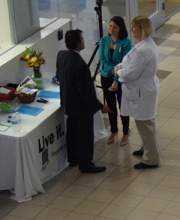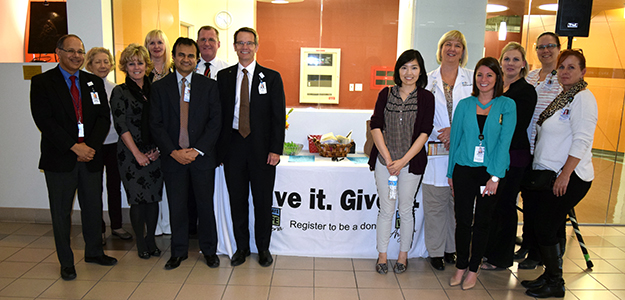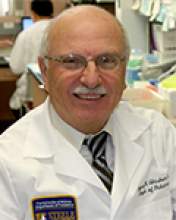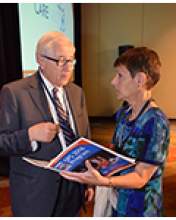Guest Speaker: “Targeting Lymphocyte Traffic in IBD: Past, Present and Future”
DOM Research Seminar Series
SPEAKER: Jesús Rivera-Nieves, MD, Professor of Medicine, Division of Gastroenterology, UC San Diego School of Medicine, and member, Inflammatory Bowel Disease Center, UC San Diego Medical Center
TOPIC: “Targeting Lymphocyte Traffic in Inflammatory Bowel Disease (IBD): Past, Present and Future”




 With a year-to-date total of 108 kidney transplants, the multidisciplinary team of transplants specialists and surgeons in the UA Departments of Nephrology and Surgery—as well as others supporting it—recently celebrated the all-time record achievement at the Banner – University Medical Center Tucson (BUMCT).
With a year-to-date total of 108 kidney transplants, the multidisciplinary team of transplants specialists and surgeons in the UA Departments of Nephrology and Surgery—as well as others supporting it—recently celebrated the all-time record achievement at the Banner – University Medical Center Tucson (BUMCT).
 John Ehiri, PhD, MPH, MSc, professor and chair of the Department of Health Promotion Sciences at the
John Ehiri, PhD, MPH, MSc, professor and chair of the Department of Health Promotion Sciences at the 
 The
The 

 A new program designed to appeal to men and racial and ethnic minorities who want to quit smoking is being developed by Judith S. Gordon, PhD, professor and interim vice chair for research in the
A new program designed to appeal to men and racial and ethnic minorities who want to quit smoking is being developed by Judith S. Gordon, PhD, professor and interim vice chair for research in the 

